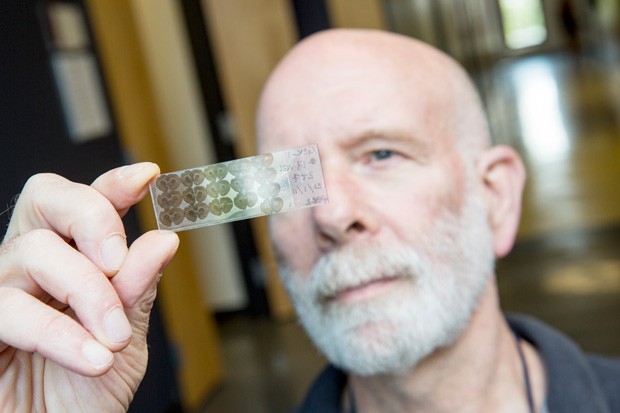Sex, drugs and … rats
 Professor Jim Pfaus uses rats in his work focusing on dopamine and sexual desire. Photo by Concordia University
Professor Jim Pfaus uses rats in his work focusing on dopamine and sexual desire. Photo by Concordia University
Nobody sets out to become a heroin addict or an alcoholic. We know that substance abuse ravages our bodies and damages our interpersonal relationships. So why do some people pursue behaviours that can have disastrous effects on their lives?
For 30 years, this type of question has driven the Center for Studies in Behavioral Neurobiology (CSBN), one of Concordia’s most respected multi-disciplinary research centres.
Created in 1983 by four professors from the Department of Psychology who specialized in neuroscience, the centre has sought to develop an integrated research and training environment that brings behavioural and scientific approaches to the study of addiction, motivation and reward.
According to founding member Jane Stewart, the early 1980s was a period of great advancement in the field. “There was a burgeoning of new technologies and research methods that allowed us to observe the brain in ways that we were not able to before,” she says. “Being able to detect brain receptors in individual cells was a great help in my research on the motivational effects of drugs on behaviour.”
As CSBN grew, the focus expanded to incorporate research on chronobiology, learning and memory. The idea was to complement Concordia’s Department of Psychology with specialized research facilities and supporting technical personnel.
Another main focus was connecting graduate students to visiting specialists in the field, and subsidizing their participation in scientific meetings.
“We wanted to create a community of highly skilled scientists fascinated by — and dedicated to — the study of brain and behaviour,” says Peter Shizgal, professor of Psychology and CSBN co-founder.
Over the years, one of CSBN’s main methods of understanding behaviour has been to conduct experiments on rats using behavioural animal models of human disorders. This research is important in the treatment of sleep disorders and drug addiction, as well as in reaching an understanding of how humans make choices based on the perception of value.
Professor Jim Pfaus, who joined the centre in 1992 and whose work focuses on dopamine and sexual desire, explains why using rats is so effective: “Rats are very much like humans. They are social animals that can form monogamous parental units. By observing rats interact, and by seeing into their brains, we can deduce a cause and effect that models a certain human condition.”
However, there are limitations to what can be garnered from these observations. Humans are much more sophisticated and act in ways that are imbued with language, meaning and conscious awareness.
“We are trying to understand what is arguably the most complex object known to man: the brain,” says Shizgal. “CSBN has already produced practical benefits and promises to yield much more in the future, but the field is relatively young and there is still much to learn.”
This is one of the primary reasons for why the centre continues to recruit researchers and graduate students from across disciplines and institutions. CSBN currently comprises 16 investigators from a variety of departments at Concordia and other Montreal institutions.
“If the centre is to continue to have an impact, we need to constantly attract a critical mass of talent,” says Shimon Amir, the centre’s director. “New fields of research within neurobiology will give us a fresh perspectives and new expertise to ensure that CSBN remains a cutting-edge research centre.”
CSBN celebrates its 30th anniversary from October 3 to 4, 2013. The festivities include “Environmental epigenetics: how childhood experience regulates your genes,” a free public lecture open during Homecoming 2013. Click on the link below.


